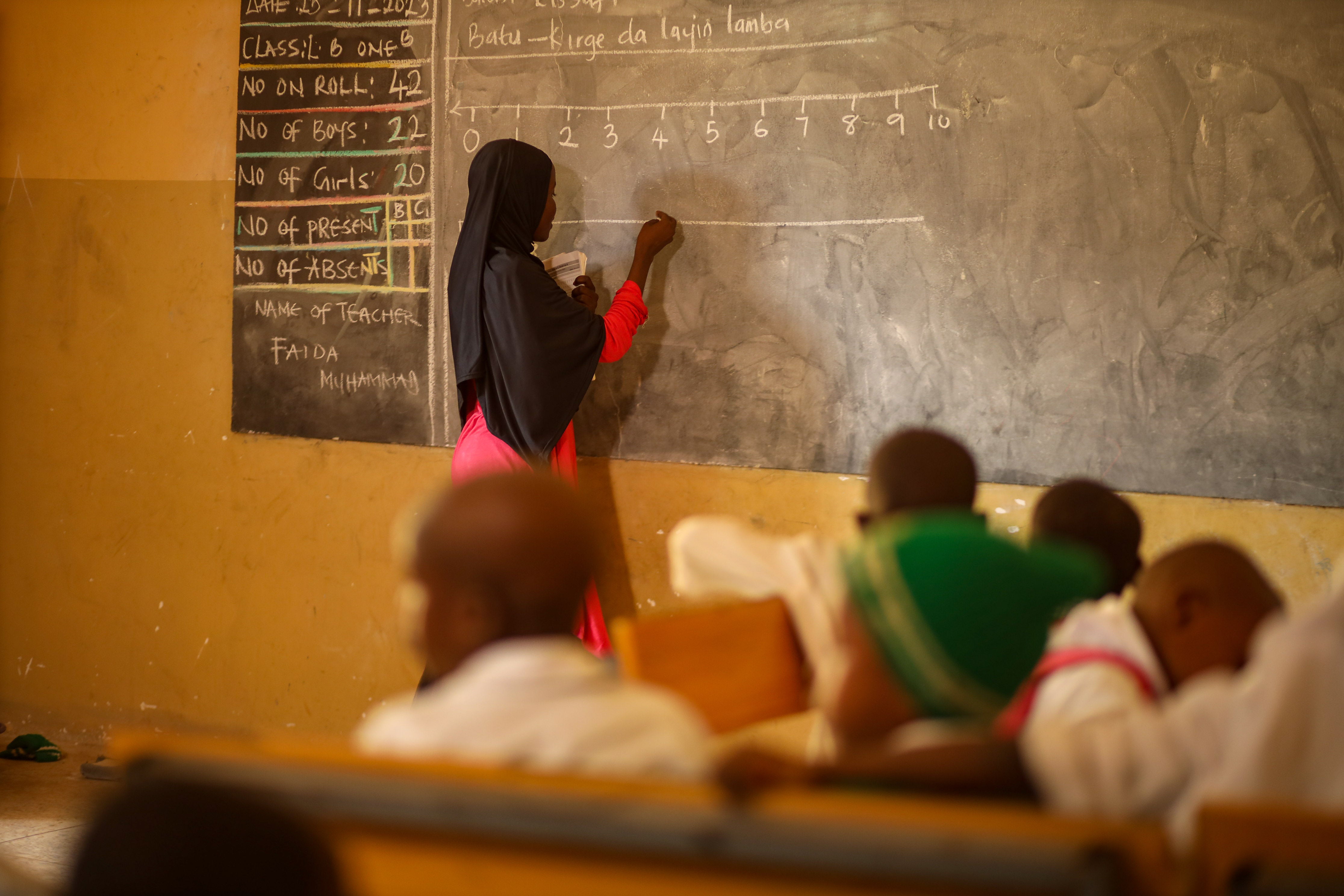Lessons from a Theory-based Evaluation and Contribution Analysis of Partnership for Learning for All in Nigeria (PLANE) programme.
Webinar | Online
About the Event

CONTEXT
In many countries, children are out of school or in school but not learning. The Foreign, Commonwealth and Development Office (FCDO) is currently funding a portfolio of three programmes, Partnership for Learning for All in Nigeria (PLANE, 2019-2028), to create a more inclusive and effective education system in Nigeria. PLANE is being implemented across five states in Northern Nigeria – Borno, Jigawa, Kaduna, Kano, and Yobe. Furthermore, the FCDO commissioned the Human Development Evaluation, Learning, and Verification Service (DELVe) to provide independent evaluation, learning and verification services for the PLANE portfolio. DELVe is a consortium managed by Ecorys, in partnership with Itad (providing additional MEL support) and Preston Associates (responsible for all in-country work). DELVe – led by Preston on the ground - carried out a baseline performance evaluation (2022-2023) across five States to achieve the following objectives:
1. To assess whether relevant previous programme interventions in the focal states and regions have been sustained, and how these are aligned to the design of PLANE;
2. To establish the existing evidence for, and plausibility of, the PLANE ToC and its logic, including factors that might affect change pathways;
3. To provide information and recommendations to FCDO and PLANE IPs to support learning and adaptation, including to the ToC and its assumptions, programme design, targets or KPIs;
4. To provide information and recommendations to PLANE stakeholders and participants to encourage learning and support to programme implementation.
This baseline evaluation used a mixed method of theory-based evaluations and contribution analysis. It was structured around four modules to address the multiple levels at which PLANE works - Processes, Systems, Schools, and Communities - each focusing on Evaluation Questions tied to OECD-DAC evaluation criteria.
Furthermore, the Systems module utilises a Governance Assessment Framework (GAF) to assess the capacity of relevant government ministries, departments and agencies (MDAs), non-governmental entities, systems and relationships that connect local stakeholders to the state systems. This framework comprises five areas: Policy Reform, Participation, Accountability, Public Financial Management, and Personnel Management. A Capacity Development Framework (CDF) was also used to understand the nuances of capacity development at institutional, organisational and individual levels.
SESSION OBJECTIVE
This session will present the approaches and methods used in the baseline performance evaluation, the findings and lessons for policy makers, implementers and evaluation practitioners. It will focus on these key questions: Are the approaches and methods fit for purpose? What should be the consideration during the midline evaluation? What are the other considerations for the systems components of the evaluation?
HOW THE SESSION WILL BE DELIVERED
The session will have ample room for plenary discussion, reflecting on whether the approaches are fit for purpose, implications for the mid-line and clarity on the systems approach.
In many countries, children are out of school or in school but not learning. The Foreign, Commonwealth and Development Office (FCDO) is currently funding a portfolio of three programmes, Partnership for Learning for All in Nigeria (PLANE, 2019-2028), to create a more inclusive and effective education system in Nigeria. PLANE is being implemented across five states in Northern Nigeria – Borno, Jigawa, Kaduna, Kano, and Yobe. Furthermore, the FCDO commissioned the Human Development Evaluation, Learning, and Verification Service (DELVe) to provide independent evaluation, learning and verification services for the PLANE portfolio. DELVe is a consortium managed by Ecorys, in partnership with Itad (providing additional MEL support) and Preston Associates (responsible for all in-country work). DELVe – led by Preston on the ground - carried out a baseline performance evaluation (2022-2023) across five States to achieve the following objectives:
1. To assess whether relevant previous programme interventions in the focal states and regions have been sustained, and how these are aligned to the design of PLANE;
2. To establish the existing evidence for, and plausibility of, the PLANE ToC and its logic, including factors that might affect change pathways;
3. To provide information and recommendations to FCDO and PLANE IPs to support learning and adaptation, including to the ToC and its assumptions, programme design, targets or KPIs;
4. To provide information and recommendations to PLANE stakeholders and participants to encourage learning and support to programme implementation.
This baseline evaluation used a mixed method of theory-based evaluations and contribution analysis. It was structured around four modules to address the multiple levels at which PLANE works - Processes, Systems, Schools, and Communities - each focusing on Evaluation Questions tied to OECD-DAC evaluation criteria.
Furthermore, the Systems module utilises a Governance Assessment Framework (GAF) to assess the capacity of relevant government ministries, departments and agencies (MDAs), non-governmental entities, systems and relationships that connect local stakeholders to the state systems. This framework comprises five areas: Policy Reform, Participation, Accountability, Public Financial Management, and Personnel Management. A Capacity Development Framework (CDF) was also used to understand the nuances of capacity development at institutional, organisational and individual levels.
SESSION OBJECTIVE
This session will present the approaches and methods used in the baseline performance evaluation, the findings and lessons for policy makers, implementers and evaluation practitioners. It will focus on these key questions: Are the approaches and methods fit for purpose? What should be the consideration during the midline evaluation? What are the other considerations for the systems components of the evaluation?
HOW THE SESSION WILL BE DELIVERED
The session will have ample room for plenary discussion, reflecting on whether the approaches are fit for purpose, implications for the mid-line and clarity on the systems approach.
Speakers
| Name | Title | Biography |
|---|---|---|
| Louise Wetheridge | ||
| Zakariya Zakari |
Moderators
| Name | Title | Biography |
|---|---|---|
| Raj Popat | Project Manager, DELVe |